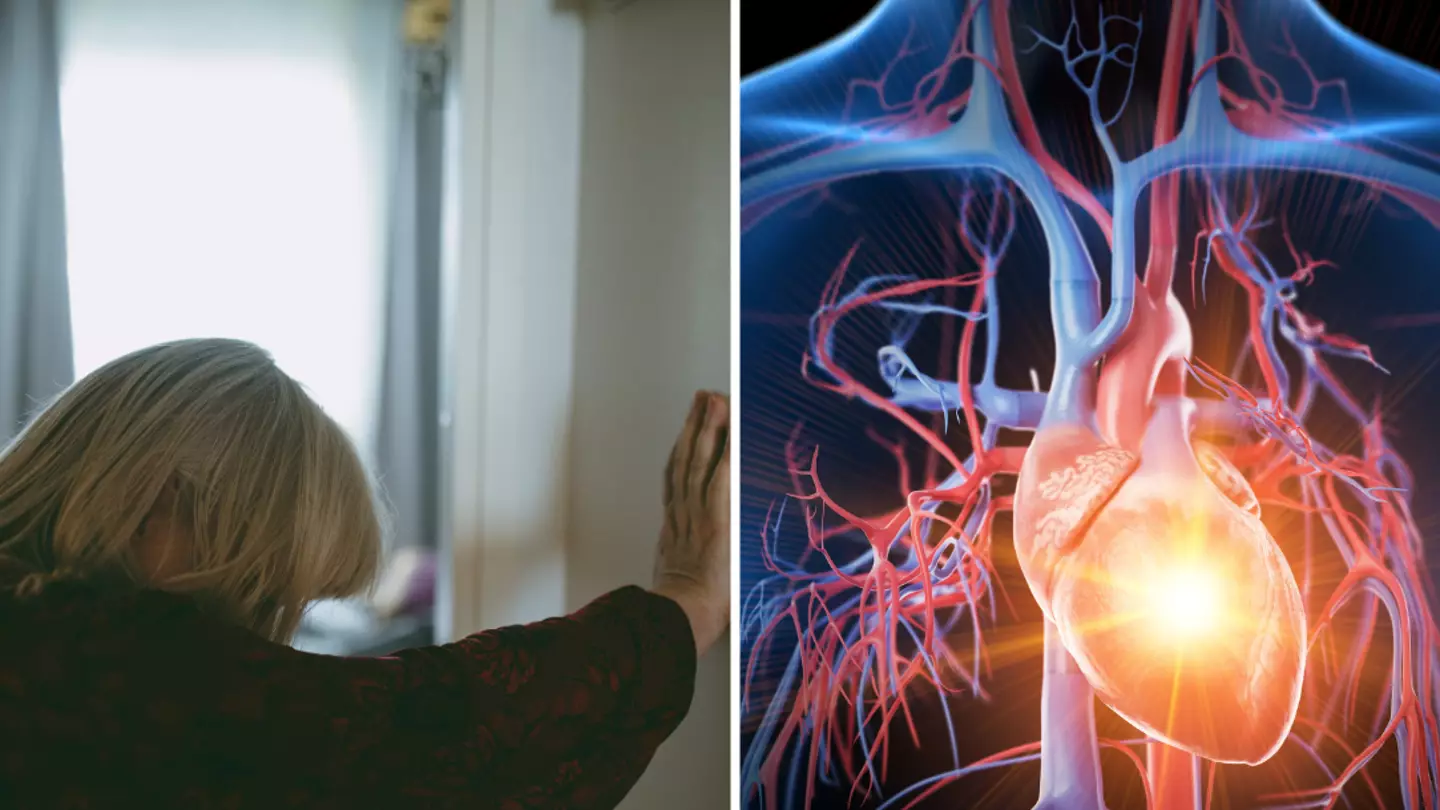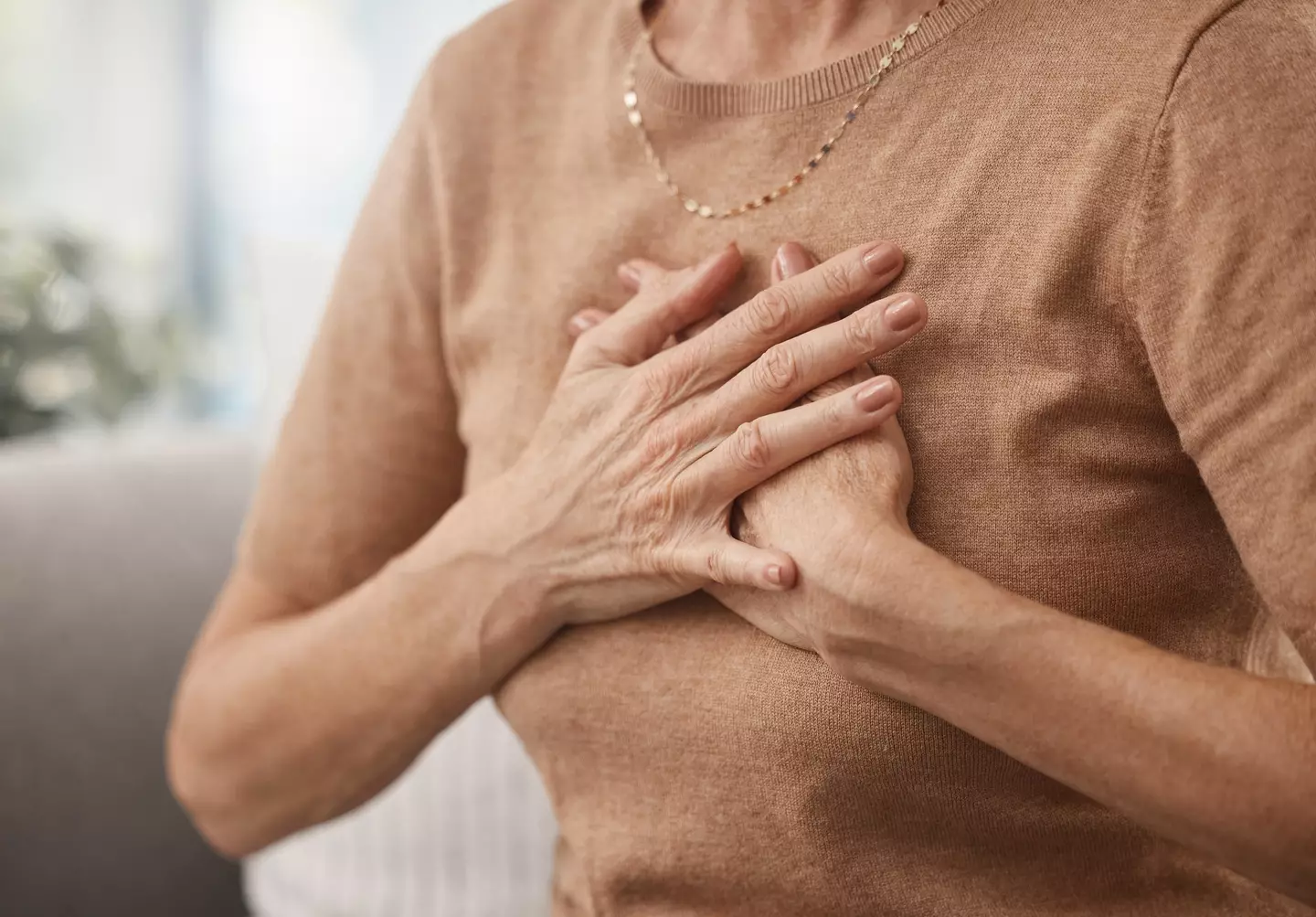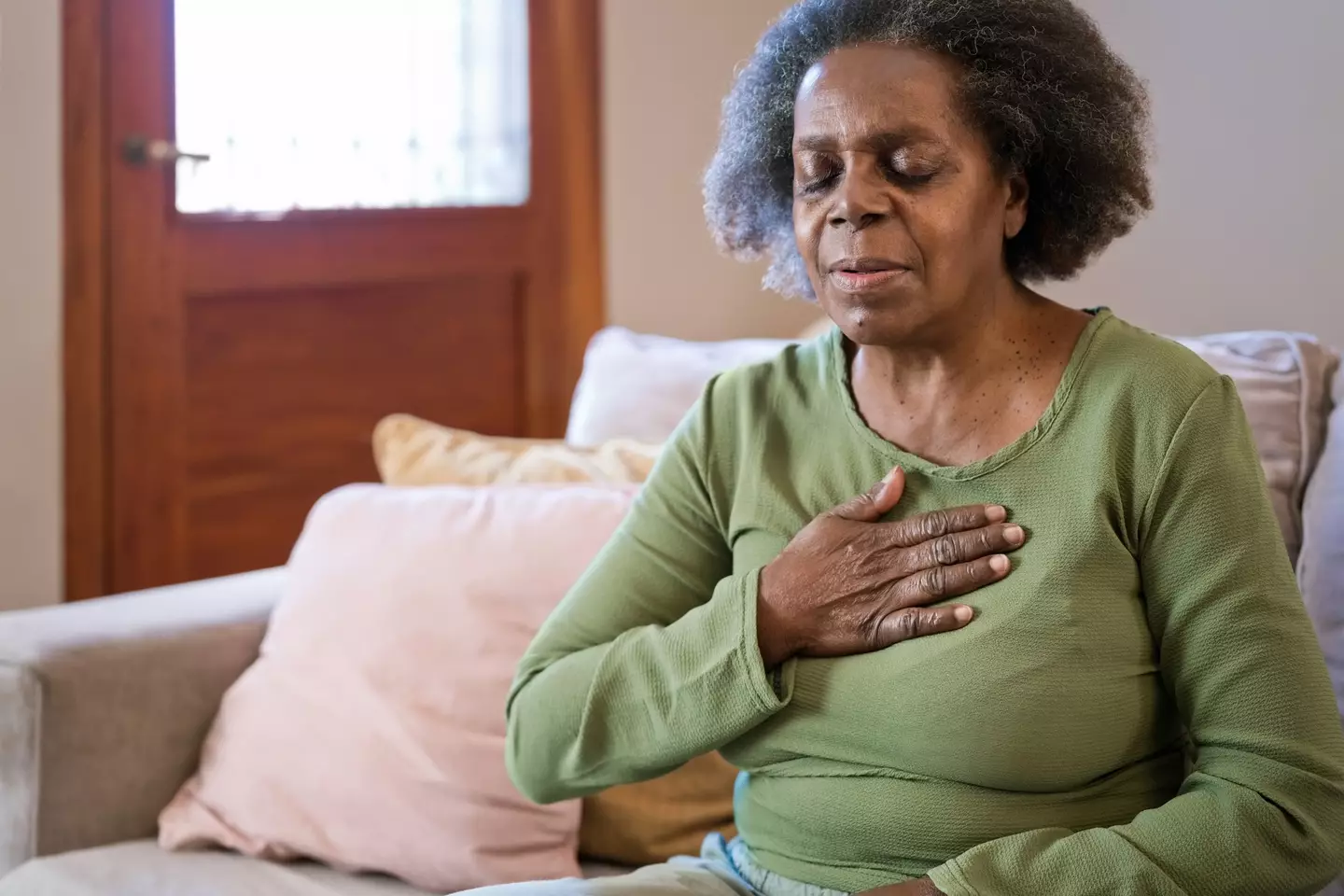
A warning has been issued to women over 'silent heart attacks' and the signs to be aware of if they're experiencing one.
While many would assume that they'd feel symptoms such as chest pain, shortness of breath and pain in the arms when having a heart attack, it turns out that this isn't always the case.
Unbelievably, some people can have a heart attack without realising it - and this is what a 'silent heart attack' is.

What is a silent heart attack?
It is still a heart attack which, as the NHS states, is a medical emergency where the blood supply to the heart suddenly becomes blocked.
Advert
But a silent one comes with either mild symptoms, ones that people don’t usually connect to a heart attack, or - even more frighteningly so - none at all.
Yep, this means that some people can have a heart attack without even knowing.

Causes of a silent heart attack
The Cleveland Clinic explains that they are commonly caused by coronary artery disease, which is when plaque that contains cholesterol collects in your coronary arteries, limiting how much blood can get to your heart.
"When a blood clot forms on the plaque, it can keep oxygen-rich blood from getting through at all," the site states. "Without quick treatment to restore blood flow, heart muscle can die."
While studies have differed, silent heart attacks are suggested to be more common in women than in men, and it is believed that some women may be more likely to dismiss the symptoms as stress or anxiety.

Common risk factors among women
Risk factors for women are the same as a regular heart attack, and include:
- Diabetes
- High blood pressure
- High cholesterol
- Smoking
- Family history of heart disease
- Obesity
- Increasing age

Symptoms of a silent heart attack
Those who've suffered a silent heart attack experienced mild and arguably common sickness symptoms, such as:
- Indigestion
- Flu-like symptoms
- Strained muscles in the chest and upper back
- Discomfort in the jaw and upper back or arms

How can you avoid a silent heart attack?
The American Heart Association's Go Red for Women has suggested some lifestyle tips that can be preventive in having a heart attack or a silent one:
- Be aware of your blood pressure and cholesterol numbers
- Exercise regularly
- Quit or avoid smoking
- Keep blood sugar under control if you're diabetic
- Always seek healthcare advice if you feel something isn't right
If you experience any of these symptoms and feel you're having a heart attack, call 999 immediately. And if you feel you're having a silent heart attack, as Go Red for Women urge, be sure to make it clear that you think you may be having a heart attack and not an anxiety attack - advocate for yourself or, if you can, bring someone who will advocate for you.
Topics: Health, Women's Health